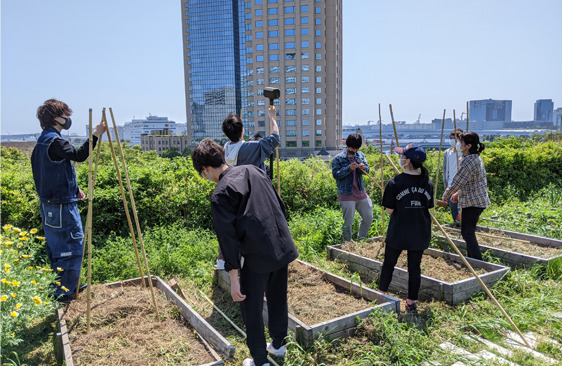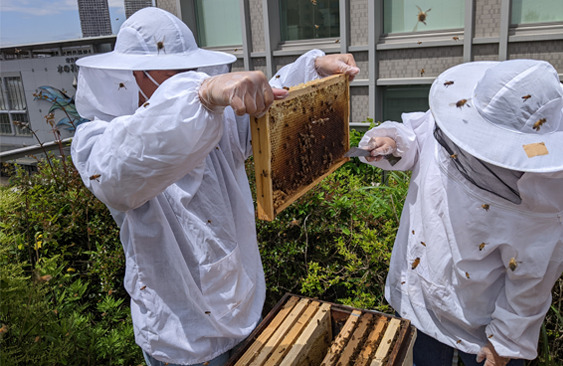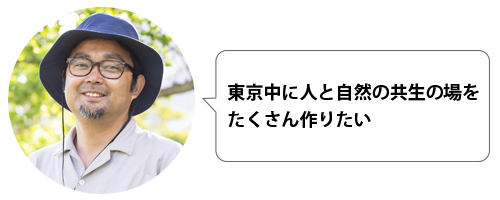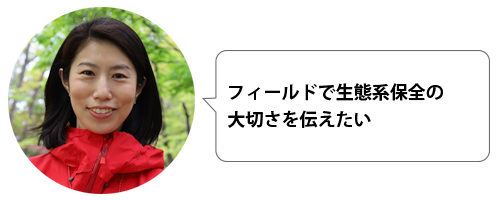Musashino University Faculty of Engineering will reorganize the Department of Environment Systems next spring to open the first new department in Japan with the name "Sustainability".We will introduce the background of the establishment and the learning of the "Sustainability Department" with the talks of Associate Professor Osamu Akashi and Lecturer Keiko Ioki (both belonging to the Department of Environment Systems) who will be responsible for the future of the department.

Why is it in the Department of Sustainability now?
Musashino University opened the Faculty of Environmental Studies in 2009 and changed it to the Faculty of Engineering in 2015. Since then, it has analyzed environmental problems engineeringly and disseminated solutions to society.However, in recent years, the social situation has changed due to significant climate change, and what is required is not only measures to improve environmental problems, but also those that promote changes in society as a whole, such as the realization of a carbon-free society and a sustainable society. It has changed.
Taking the introduction of renewable energy aimed at decarbonization as an example, it is easier to accept the appeal that it will create a regional economic cycle and eventually lead to the welfare of residents, rather than just responding to climate change.Also, in order to promote change,The power to enter the community, involve people, and change the community and societyThere is an urgent need for a curriculum that integrates humanities and sciences with the perspective of "social design" in order to create a future society, in addition to engineering.A major feature of the new department is that it incorporates social science into engineering and clearly sets out this point.
The curriculum organization and teaching methods will be significantly renewed in line with the department's concept of cultivating the power to change society.
The curriculum organization of "subjects", which is common in university education, will be changed to "project-centered".The centerpiece is the compulsory "Sustainability Project" from the 400st year to the 2rd year.XNUMX minutes a week, two afternoons will be spent on this entire time, and the number of credits will be doubled.
There are practical type and inquiry type to solve social issues, but in both cases, the flow is to learn the knowledge and skills that are felt necessary while working on the project through classroom lectures and self-study.Of course, the basic knowledge and skills required for project activities are learned in advance, but all conventional lectures on specialized fields are also organically linked here.Therefore, while working on the project, the lack of knowledge becomes clear and the motivation to learn is stimulated, so the quality of input improves.In addition, since the absorbed knowledge is output in the project, it becomes easier to establish it, and a virtuous cycle of learning can be expected.
All faculty members will participate and prepare various themes, but most of them will be done off-campus in collaboration with companies.By conducting concrete and practical learning, you will be able to acquire tenacious adjustment and execution skills toward realization, and you will be able to improve your employment skills.
In terms of practical learning, for example, even in the engineering field, we will increase the number of skill-based exercises such as surveying, analysis methods, and design methods more than ever.We aim not only to understand with our head but also to move our hands to improve the concept and skills from "know" to "usable".
I want you to learn widely for XNUMX years with a gentle XNUMX-course system
The "Environmental Engineering Course", which states "to acquire the ability to study and propose solutions to environmental problems through engineering methods such as environmental research, simulation / analysis, and design", and the "environmental engineering course" that strongly reflects the features of the new department. Acquire the ability to promote sustainability in the two courses of "Social Design Course".
Another major feature is that you can learn design thinking such as protecting the environment while meeting human needs for food, water, and energy, and social design that goes one step further from conventional policy science and economics. ≪Aiming to cultivate the ability to actually change society by collaborating with diverse people and implementing a mechanism to promote sustainability and designing businesses for that purpose≫.
Dare to set the fence of the course low. There is also the idea of "narrowing down the area and deepening", but since many students did not have a solid idea of what they really wanted to do at the high school stage, the idea was to appeal that they could learn as widely as possible in the department.
Message from Dr. Akashi and Dr. Ioki to high school students
"Comprehensive selection is available from the first year for those who have a strong desire to change society based on the characteristics of the department and high school students who have a track record in research projects. General selection A schedule and B schedule English is essential, but combinations such as "mathematics and science (physics / chemistry)" and "national language and society" are possible, and even though it is a faculty of engineering, it should be easier to apply from the liberal arts.
There are various other entrance examination methods, and it is easy to select the method that suits you.It's a department that is deeply linked to the direction of society, learning about the promotion of sustainability, so I want high school students who are afraid to actually do something to challenge, "the two teachers agree.
All faculty members participate in the "Sustainability Project".Various themes are prepared and various practices are possible
For example, Professor Akashi is focusing on the practice of sustainable agriculture called "permaculture *".Already, under the theme of "How to coexist with greenery and nature in the city?", We are practicing natural recycling agriculture and community building for that purpose using the rooftop of the university.

We aim to realize a modern city where the connection with nature has become weak, and a city where people who live and work in it can come into contact with nature on a daily basis and feel it close to them. "I want to expand this further in the new department and spread it throughout Tokyo," says Dr. Akashi.You will also learn how to create a manual for that purpose and encourage the government to improve the environment. "It's nice to have a company where employees can go to the rooftop for lunch and harvest blueberries, and a society where it's commonplace is even nicer."He is also beekeeping and has plans to commercialize the honey he collects.

In collaboration with companies that compost kitchen waste, we are also trying to reduce local waste by setting up community compost.In these projects, you will acquire knowledge of green space design and vegetation, environmental management of companies, engineering knowledge of waste use, community building, and facilitation skills.
Exchanges with foreign countries have been suspended due to the corona disaster, but I hope that they will resume their research in the field of Borneo Island in Malaysia, such as forest and green space planning based on satellite images and geographic information. Mr. Ioki. He enthuses, "I want students to have the opportunity to actually visit the site and realize the richness of the ecosystem and the importance of forest conservation."
In addition, efforts to raise awareness of the environment by making accessories from microplastics have begun.In addition, teachers in charge of social design can learn concrete methods of how to change society.In addition to the above, various themes such as urban meteorology (environmental meteorology) and environmental psychology are being prepared for the opening next spring.

Musashino University
Osamu Akashi
Graduated from the Department of Geoengineering, Faculty of Engineering, Kyoto University in March 2003, completed the Master's Program in Environmental Management at the Graduate School of Global Environmental Studies in March 3, and completed the Doctoral Program in Global Environmental Studies at the Graduate School of Global Environmental Studies in March 2005. 3 Visiting Researcher, National Institute for Environmental Studies, 2008 Associate Professor, Department of Environmental Management, Graduate School of Environmental Studies, Musashino University, Associate Professor, Department of Environmental Management, Graduate School of Environmental Studies, Musashino University, 3 Associate Professor, Department of Environmental Systems, Faculty of Engineering, Musashino University.He is from Shizuoka Prefectural Hamamatsu Kita High School.

Musashino University
Dr. Keiko Ioki
Graduated from the Faculty of Living Environment, Nara Women's University in March 2006, completed the master's program at the Graduate School of Agriculture, Kyoto University in March 3, and completed the doctoral program at the Graduate School of Agriculture, Kyoto University in September 2008. She is a lecturer in the Department of Environment Systems, Faculty of Engineering, Musashino University in 3.She is from Osaka Prefectural Otemae High School.

